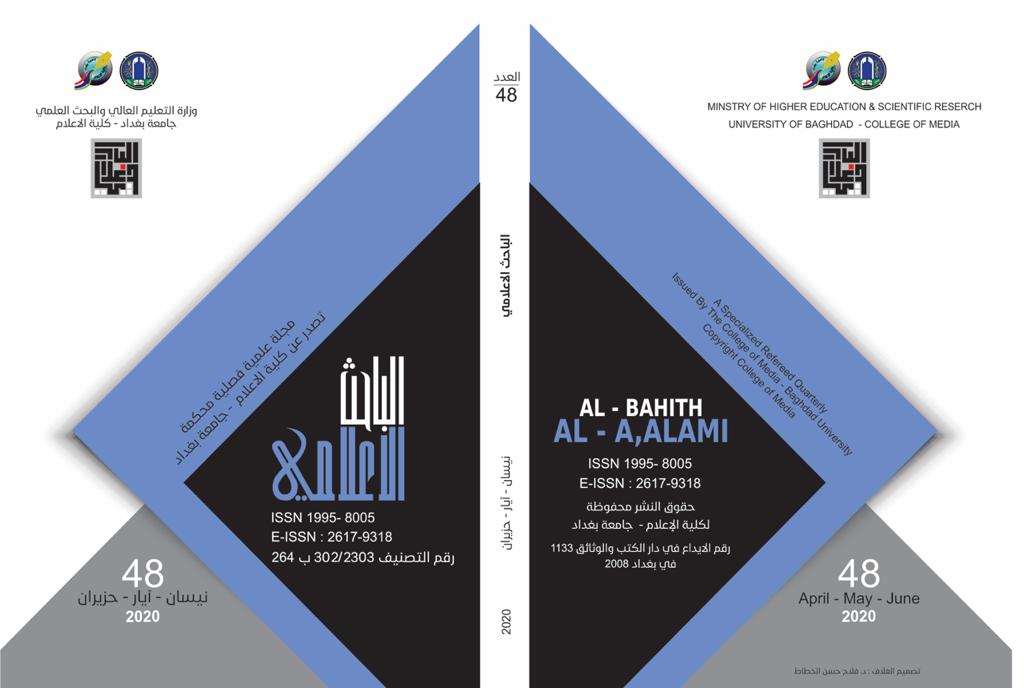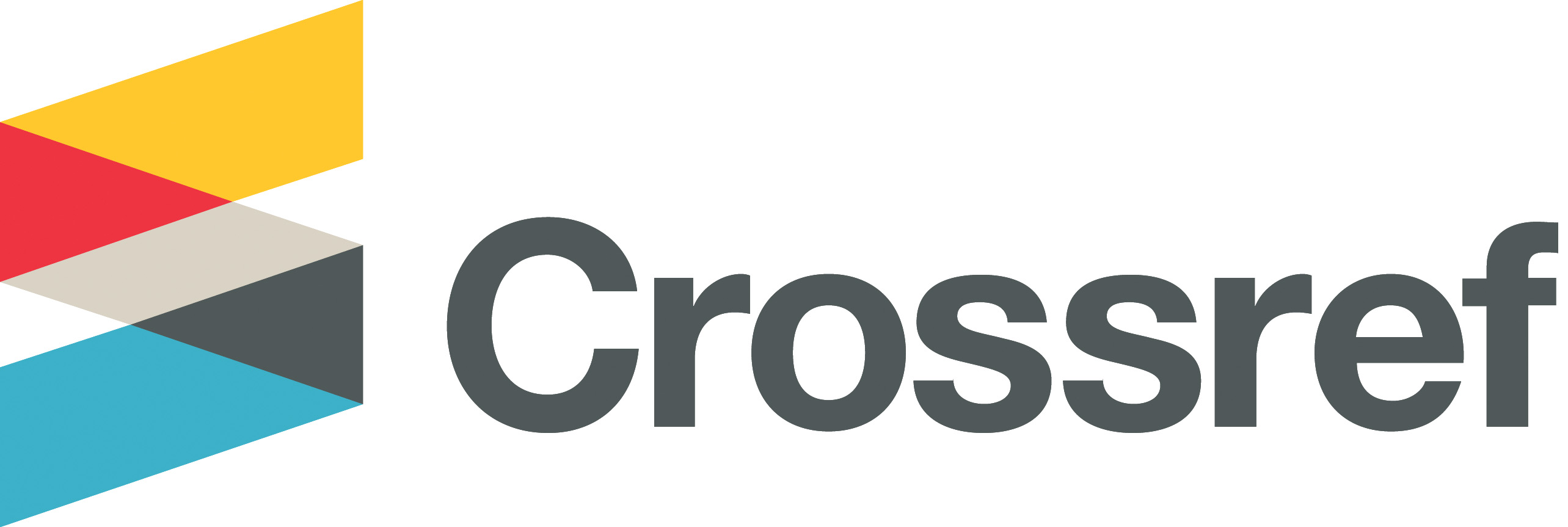THE IDEOLOGY OF UNIVERSITY STUDENTS TOWARDS POLITICAL DISCOURSE IN SATELLITE CHANNELS
A field study on media students at Al-Mustansiriya University
DOI:
https://doi.org/10.33282/abaa.v12i48.581Keywords:
political discourse, satellite channels, Al-Mustansiriya UniversityAbstract
The speech delivered by political blocs and parties and broadcasted by satellite channels, social and communication media has different ideologies and orientations: moderate speech calling for calm or one raising crises.The latter is considered very challenging due to its local and international reference., this paper aims at uncovering these challenges especially during the political crisis witnessed in Iraq. This paper sheds light on the most important crisis that spread in public opinion, broadcasted by satellite, and raised by politicians who are competing to gain authority leading to a lack of peoples, confidence in them.This matter should not be neglected at all; especially in Iraq which is witnessing the birth of new democracy after years of dictatorship.
Is it moderate convulsive, crisis-provoking, calls for calm, or escalating? Do Iraqi citizens trust the politicians, ability to solve the political crisis?
The researchers diagnosed the faults in the political speeches directed to the Iraqi public through satellite channels in different circumstances, especially during the repetitive political crisis in Iraq, and caused by the language of escalation interested in politicians, speeches that aim to adopt a moderate speech and end political disputes cris.
The main conclusion is:
* Political discourse channeled through satellite channels provides an opinion to the public about various political events and crises.
* The public believes that politicians are seeking, through their speeches, to cause crises in Iraq.
* The Iraqi public prefers a moderate speech that may contribute to stabilizing the situation.
Downloads
References
الأسود, صادق. (1991). الرأي العام ظاهرة اجتماعية وقوة سياسية. بغداد, العراق: كلية العلوم السياسية.
السيد بهنسي. (2010). الإعلام وإدارة الأزمات الدولية. القاهرة، مصر: عالم الكتب.
حسين ظاهر. (2013). معجم المصطلحات السياسية والدولية. بيروت، لبنان: مجد للنشر والدراسات والتوزيع.
ربيع, حامد عبد الله. (2007). مقدمة في نطريات الرأي العام. (ح. ع. قويسي, Éd.) القاهرة, مصر: مكتبة الشروق الدولية.
رجاء أبو علام. (2004). مناهج البحث في العلوم التربوية والنفسية (الإصدار 4). القاهرة، مصر: دار النشر للجامعات.
سمير محمد حسين. (1993). الإعلام والاتصال بالجماهير والرأي العام. القاهرة، مصر: عالم الكتب.
سيمون سيرفاتي. (1995). وسائل الإعلام والسياسة الخارجية. (محمد مصطفى غنيم، المترجمون) القاهرة، مصر: الجمعية المصرية لنشر المعرفة والثقافة العالمية.
صفا جبارة. (2009). الخطاب الإعلامي بين النظرية والتحليل. عَمان، الأردن: در أُسامة للنشر والتوزيع.
عدنان السيد حسن. (2011). قضايا دولية- الأزمة العراقية. بيروت، لبنان: المؤسسة الجامعية للدراسات والنشر والتوزيع.
عقيل حسين عقيل. (1999). فلسفة مناهج البحث العلمي. القاهرة، مصر: مكتبة مدبولي.
علام خالد السرو، و سؤدد فؤاد الآلوسي. (2012). وسائل الإعلام والصراعات السياسية. عَمان، الأردن: دار أُسامة للنشر والتوزيع.
قنديلجي, عامر ابراهيم. (1993). البحث العلمي واستخدام مصادر المعلومات. بغداد, العراق: دار الشؤون الثقافية العامة.
مجد الهاشمي. (2011). الإعلام الدبلوماسي والسياسي. عَمان، الأردن: دار أُسامة للنشر والوزيع.
محمد عبد الحميد. (2000). البحث العلمي في الدراسات الإعلامية. القاهرة، مصر: عالم الكتب.
محمد منير حجاب. (2006). أساسيات البحوث الإعلامية والاجتماعية (الإصدار 4). القاهرة، مصر: دار الفجر للشر والتوزيع.
Bibliography
Combs, M. (2003). Explaning Strategies Agenda Sitting. London, England : Chpel Hill.
Machinnion, W. A. (1971). On Rise, progress and present state of the public opinion in GreatBritain and other parts of the world. London, England: Irith University press.
Verba Sidney, Nile Norman H. (1987). Participation in America. Political Democracy and social Equality. Chicago, United state America: University of Chicago press.
Ahmed Zakaria Ahmed. (2008). Media Theories - an introduction to the interests of the media and its audiences. Mansoura, Egypt: The Modern Library for Publishing and Distribution.
Alaswad Sadik, (1991), Public opinion is a social phenomenon and a political force Baghdad,Iraq: College of Political Science.
Mr. Bahnasy. (2010). Media and international crisis management. Cairo, Egypt: The World of Books.
Hussein Zahir. (2013). A glossary of political terms for youth. Beirut, Lebanon: Majd for Publishing, Studies and Distribution.
Rabee, Hamed Abdullah. (2007). An introduction to public opinion. (Mr. Gouesi, ed.) Cairo, Egypt: Al-Shorouk International Library.
Raga Abu Allam. (2004). Research Methods in Educational and Psychological Sciences (version 4). Cairo, Egypt: University Publishing House.
Sameer Mohammed Hussein. (1993). Media and communication to the masses and public opinion. Cairo, Egypt: The World of Books.
Simon Servati. (1995). Media and foreign policy. (Muhammad Mustafa Ghoneim, The Translators) Cairo, Egypt: The Egyptian Association for the Diffusion of International Knowledge and Culture.
Gbara Safaa. (2009). Media discourse between theory and analysis. Amman, Jordan: Dor Usama for Publishing and Distribution.
Adnan Al-Sayed Hassan. (2011). International issues - the Iraqi crisis. Beirut, Lebanon: University Foundation for Studies, Publishing and Distribution.
Aqeel Hussain Aqeel. (1999). Philosophy of scientific research methods. Cairo, Egypt: Madbouly Bookstore.
Allam Khaled Al-Saro, and I will Sodd Fouad Al-Alousi. (2012). Media and political conflicts. Amman, Jordan: Usama Publishing and Distribution House.
Qandilji, Amer Ibrahim. (1993). Scientific research and use of information sources. Baghdad, Iraq: House of General Cultural Affairs.
Majd Al Hashemi. (2011). Diplomatic and political media. Amman, Jordan: Asama Publishing and Distribution House.
Mohammed Abdulhameed. (2000). Scientific research in media studies. Cairo, Egypt: The World of Books.
Muhammad Munir Hejab. (2006). Fundamentals of media and social research (version 4). Cairo, Egypt: Dar Al Fajr for Evil and Distribution.
Downloads
Key Dates
Published
Issue
Section
License
Copyright (c) 2020 Author

This work is licensed under a Creative Commons Attribution 4.0 International License.
Authors retain copyright and grant the journal right of first publication with the work simultaneously licensed under a Creative Commons Attribution License (CC BY 4.0) that allows sharing the work with recognition of authorship and initial publication in ABBA journal.


















